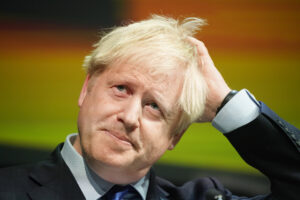In November 1953, Queen Elizabeth set off on her first international tour after her coronation. The voyage would last six months, travel 40,000 miles and visit 13 different realms. Throughout it all, the monarch would have to deal with prime ministers and governors, local politics and constitutional dilemmas, doing her best to avoid the extraordinary array of diplomatic pitfalls which lay in her way.
In the Caribbean, her government had only just ousted the elected prime minister of British Guiana, sparking angry accusations of imperial control. In Australia, a deadly polio outbreak posed a direct risk to her health. In Ceylon, Communist unrest had reached such a level the country’s premier felt he needed to warn the Queen that the visit might need to be cancelled. And in Uganda, Britain’s decision to depose and exile the Kabaka of Buganda, the traditional ruler of the country’s largest kingdom, was still causing ructions. Even in Gibraltar, the final stop of Her Majesty’s grand tour, there were demands from General Franco that the visit be abandoned.
And yet, the entire tour went ahead, millions turned out to catch a glimpse of their new sovereign, and a delighted government back in London felt a sudden rush of confidence about our international standing following the loss of India only a few years earlier.
Last week, the Gallic half of King Charles’s first foreign expedition as monarch had to be cancelled because of the rioting in Paris. And so all he will have to show for his first overseas excursion as King will be a short tour of Germany.
To those of a certain temperament, the contrast between mother and son is more than a little sobering. But rather than lamenting the timidity of modern life or the decline of our national horizons, I say we should cheer them. Charles’s first trip as King might reflect the decline of our global stature, but there is nothing wrong with this decline. It could be a very good thing.
Once you take off the rose-tinted spectacles, the 1953 tour was not quite what it seemed. The objective of the great global jamboree was to “reaffirm the durability of the British Empire”, as Philip Murphy wrote in Monarchy and the End of Empire. The problem was not that it failed in this regard — though of course it did — but that the tour was so successful in every other regard that it blinded the country’s governing elite to the reality of the post-war world.
Following the Queen’s visit to New Zealand, the High Commissioner, Sir Geoffrey Scoones, wrote that the Queen’s mere physical presence — in her full “regal splendour” — engrained the very idea of the Commonwealth in the minds of those outside Britain. In this Commonwealth, Sir Geoffrey wrote, Britain was just one of several kingdoms bound together in their allegiance to the Crown. Britain was no longer the ruler of an empire — just another country in one great family of nations. The diplomatic idea was that while the empire was no more, the Commonwealth could still protect Britain’s global influence.
The problem was that this wasn’t true. Sir Geoffrey’s idea was that Elizabeth was just as much the Queen of Australia as she was the Queen of England (or, more accurately, the UK). But this never really stood up to scrutiny. There was even an idea at this time that she might turn her court into a kind of travelling circus, moving from realm to realm, London to Ottawa, Canberra to Auckland, to show that she was Queen of all, favourite of none. This idea, of course, bumped up against reality. Elizabeth was primarily Queen of the home country, living in England and leaving the administration of her other realms to her representatives. Underneath the pomp of Britain’s changing imperial order lay the same old country underneath. Britain had entered a post-imperial world — it just did not entirely accept that yet.
Similar delusions were on display during the Queen’s trip to Australia. Like his counterpart in New Zealand, the high commissioner in Canberra, Sir Stephen Holmes, claimed Elizabeth’s presence had ensured the monarchy would remain a central part of Australia’s emerging national identity. Until this point, remember, you could be Australian and British, just as you could be English and British. Maintaining the royal link to the home country was seen as fundamentally important because Britain’s relationship with Australia was key to protecting the country’s global influence.
Once again, though, these ideas owed more to sentiment than cold-headed reality. Much as Australia’s prime minister at the time, Robert Menzies, considered himself “British to his bootstraps”, Australia was on its way to a separate identity with separate interests, not as one of the many “British peoples” around the world, as the Duke of Edinburgh put it, but as Australians, separate from Britain and increasingly dependent on the United States for its security. No matter how many royal tours of Australia the government paid for, this basic reality was not going to change.
Today, Charles more closely resembles the other Kings and Queens of Europe than his mother, just as Britain more closely resembles the other countries of Europe than a mini America. That Charles was only due to visit France and Germany on his first trip — and that even half of this has been cancelled — only reveals the extent to which we have become normal again.
Later this week, Charles will become the first foreign head of state since the Second World War to be welcomed with full military honours at Berlin’s Brandenburg Gate. He will also become the first British monarch to address the Bundestag. Neither of these things should be dismissed. In today’s world, such things are far more important than some globetrotting tour that would do little to enhance our core national interest.
The point is this: being normal is good. The problem for Britain is not that we are normal, but that we have fallen behind normal in too many parts of our national life — from general levels of wealth to general levels of public service. Striving to be normal could be a liberating national mission, freeing us from the pressure to be anything more. To me, there is actually something quite uplifting about Charles attempting to make the most understated and mundane of foreign visits, quietly going about his business rather than aiming for some grand statement of global relevance or, worse, entering into some competition with his son for American approval. Touring the port of Hamburg, pointing at new green technology is just the kind of foreign visit Charles is good at.
Earlier this month, Charles’s Dutch counterpart, the King of the Netherlands, toured Slovakia at the head of a business delegation promoting his country’s economy. “The business delegation consists mostly of companies from the waste processing, recycling, soil remediation and circular construction sectors,” read an official press statement. This is the kind of kingship Britain now needs: waste processing promotion. Forget Walter Bagehot’s idea of theatrical “dignified” monarchy. We have no shortage of pomp and ceremony to keep us going each year. And it really doesn’t matter if all this excitement and reverence becomes a purely domestic affair. The Netherlands no longer has much of an international role, but it is extremely rich. I’d take that right now.
We seem to have forgotten that, once upon a time, being a Little Englander was a good thing, a term of abuse for progressives who did not particularly care for the British Empire and wanted more focus on the welfare of those in the home country. The opposite of a Little Englander was an imperialist. Today, that meaning has been lost. Being a Little Englander is now a derogatory term for provincial yokels, many of whom, ironically, are also accused of being in thrall to some kind of imperial nostalgia. How things change.
I say let’s bring back the original idea of Little Englandism. Let’s actively pursue smallness. Let’s concentrate on the condition of England, which, let’s face it, is not great. If it helps us to send Charles on waste management promotional tours of Slovakia, rather than journeys of fancy, so be it. Let’s make England little again.
Disclaimer
Some of the posts we share are controversial and we do not necessarily agree with them in the whole extend. Sometimes we agree with the content or part of it but we do not agree with the narration or language. Nevertheless we find them somehow interesting, valuable and/or informative or we share them, because we strongly believe in freedom of speech, free press and journalism. We strongly encourage you to have a critical approach to all the content, do your own research and analysis to build your own opinion.
We would be glad to have your feedback.
Source: UnHerd Read the original article here: https://unherd.com/



